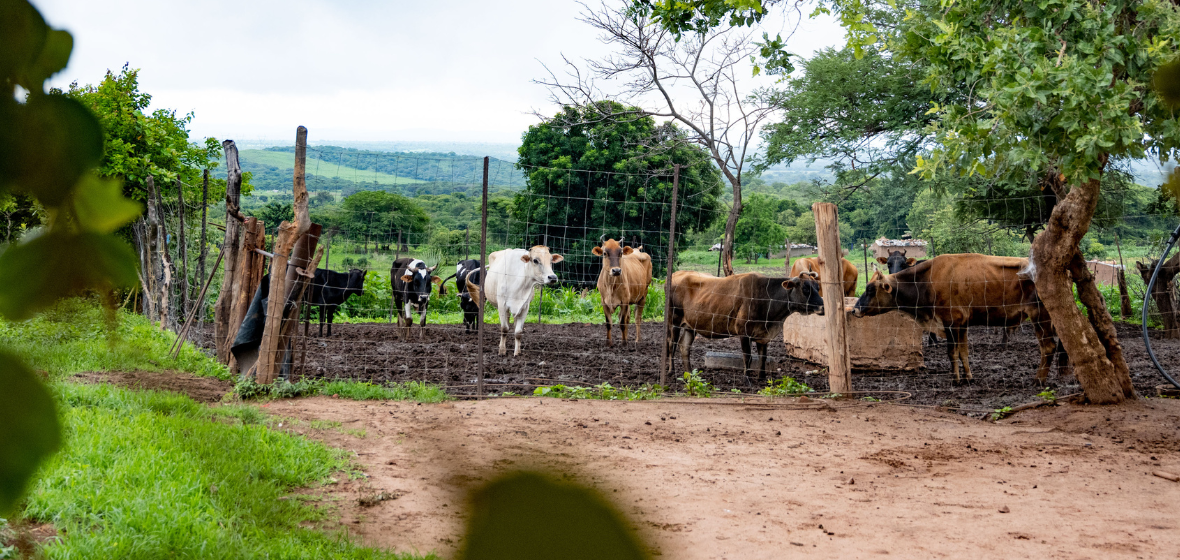
BLOGS, ARTICLES AND NEWS
Get updates directly from the CA4SH Global team and stakeholders
#Youth4Soil Presents the First Youth Soil Health Solutions Showcase
The Coalition of Action for Soil Health (CA4SH) #Youth4Soil Working Group held its inaugural Virtual Soil Solutions showcase on Thursday, 6th March 2025. The event was dubbed “We Grow We Eat” to celebrate soil as a growing medium for 95% of the world's food. The showcase provided a platform for #Youth4Soil members to exhibit the soil health solutions they are already implementing in their local contexts and interact with key stakeholders to grow those solutions.
Harnessing the Power of Biochar for Global Soil Health and Beyond: Insights from the International Biochar Initiative
In an era where soil degradation threatens food security and environmental stability worldwide, the International Biochar Initiative (IBI) is at the forefront of promoting biochar as a circular solution. The 2023 Global Biochar Market Report, co-authored with the US Biochar Initiative (USBI), presents an in-depth analysis of the biochar industry’s growth and its crucial role in improving soil health on a global scale.
CA4SH Finance Webinar: Investing in soil health from the ground up
From afar, scaling soil health by switching from traditional monocrop agricultural systems to regenerative systems may seem as easy as planting the right plants in the right spot. However transitioning to new systems usually sees farmers’ yields decrease before they increase, which can be a limiting factor for farmers who don’t have a financial cushion to fall back on. Support is needed to help them bridge the gap.
CA4SH is a multi-stakeholder partnership of member states, the private sector, research institutions, civil society, farmer organizations, multilateral organizations, NGOs, and more. Drawing on this wealth of knowledge, we organized the second installation of our 2024 Webinar Series: The road ahead for soil health action to explore different mechanisms to invest in soil health, making sure these investments reach smallholder farmers.
Op-Ed: Biochar Carbon Removal Strengthens Global Food Security
By: Wendy Lu Maxwell-Barton, International Biochar Initiative
Since September of 2023, the world has known that the global community is not meeting the goals set in the Paris Accord— and the window to meet them without exceeding 2 degrees C or warmer is rapidly closing. The United Nations Framework Convention on Climate Change’s (UNFCCC) Global Stocktake process emphasized both the need for emissions reductions, as well as carbon dioxide removal (CDR) to slow and eventually reverse climate change-caused global warming.
While CDR technologies come in many forms and scales, the technology funded at a very high rate to date is direct air capture, garnering some US$4B in funding, tax breaks, and other sources of government funding. Despite this, there is less well-known yet predominant CDR technology that simultaneously delivers improved soil health, strengthened food security, and increased farmer profits through increased crop yields and lowered input costs on top of carbon dioxide removal. What am I referring to? Biochar carbon removal.
International Impact: Paving The Road to COP28 with Biochar Asphalt
“With nearly 400 participants from 40 countries, 40+ speakers, 30+ exhibitors, plus our amazing sponsors US Biochar Initiative, Carbonfuture, KMW Energy Systems, Puro.earth, and Pyreg, plus IBI’s first media partner, the Carbon Herald, we had a vibrant three days of presentations, networking, and collaboration.”
Read the whole review from the International Biochar Initiative’s Annual Symposium
What is biochar? Why an ancient farming technique could help fight climate change
“A new study estimates that biochar could capture as much as 3 billion metric tons of CO2 each year. Here’s how the process works.”
Read the full story from fastcompany.com
By Adele Peters
Biochar offers an accelerated pathway to global decarbonization, says new research
“The first-of-its-kind data highlights biochar’s potential to scale carbon removals as a win-win solution for people and the planet.
Biochar can potentially remove up to 6% of global emissions annually – the approximate equivalent of 3 billion tonnes of CO2 or the total emissions of 803 coal-fired power plants in one year.
Biochar also has a minimum removal potential of 10% in over 25 countries, concentrated in Africa, South America, and Eastern Europe, and can potentially reduce carbon emissions by over 30% in Eswatini and more than 20% in Malawi, Argentina, and Ghana.
The greatest carbon dioxide removal (CDR) potential – rests with the world’s biggest emitters, including China, the United States, Brazil, and India, who can chart a pathway for sustainable emissions reductions through biochar.”
Read the full article from the International Biochar Initiative
Training the Future of the Biochar Industry
“This June, International Biochar Initiative (IBI) launched the inaugural Biochar Academy: an in-person and online learning project modeling a train-the-trainers education approach to develop a global biochar workforce.
The IBI Biochar Academy provides direct training for farmers, agriculture extension agents, policymakers, climate-smart agriculture organizational staff, climate project developers, and researchers interested in practical knowledge.”
Crop Residue Management for Healthy Soils
Burning of unused crop residue is a common practice among farmers in India, contributing to carbon emissions and air pollution. BAIF and GIZ have partnered to establish a farmer producer organisation to convert this residue into biochar. Farmers sell their waste biomass to the FPO and purchase biochar to apply to their crop fields.









